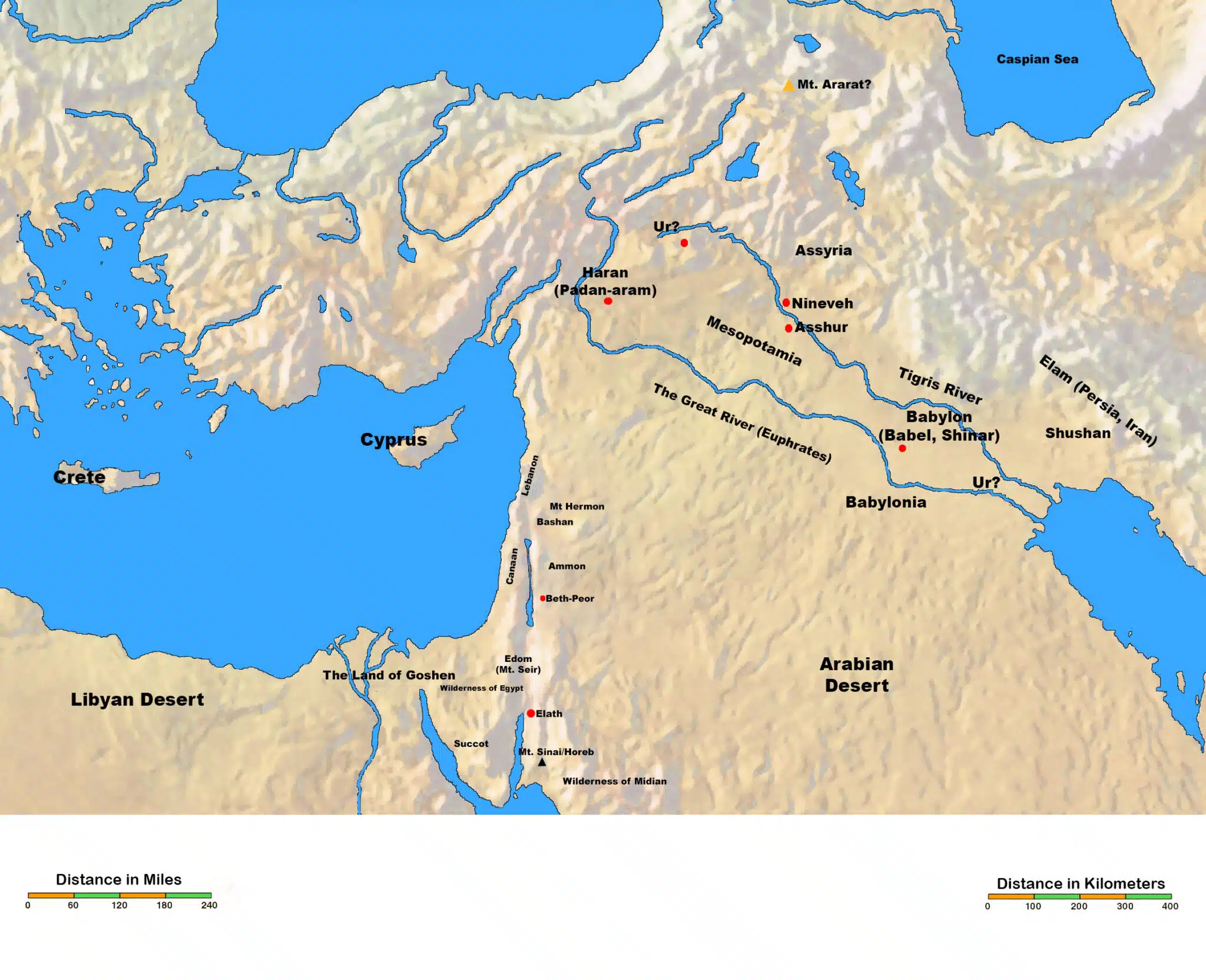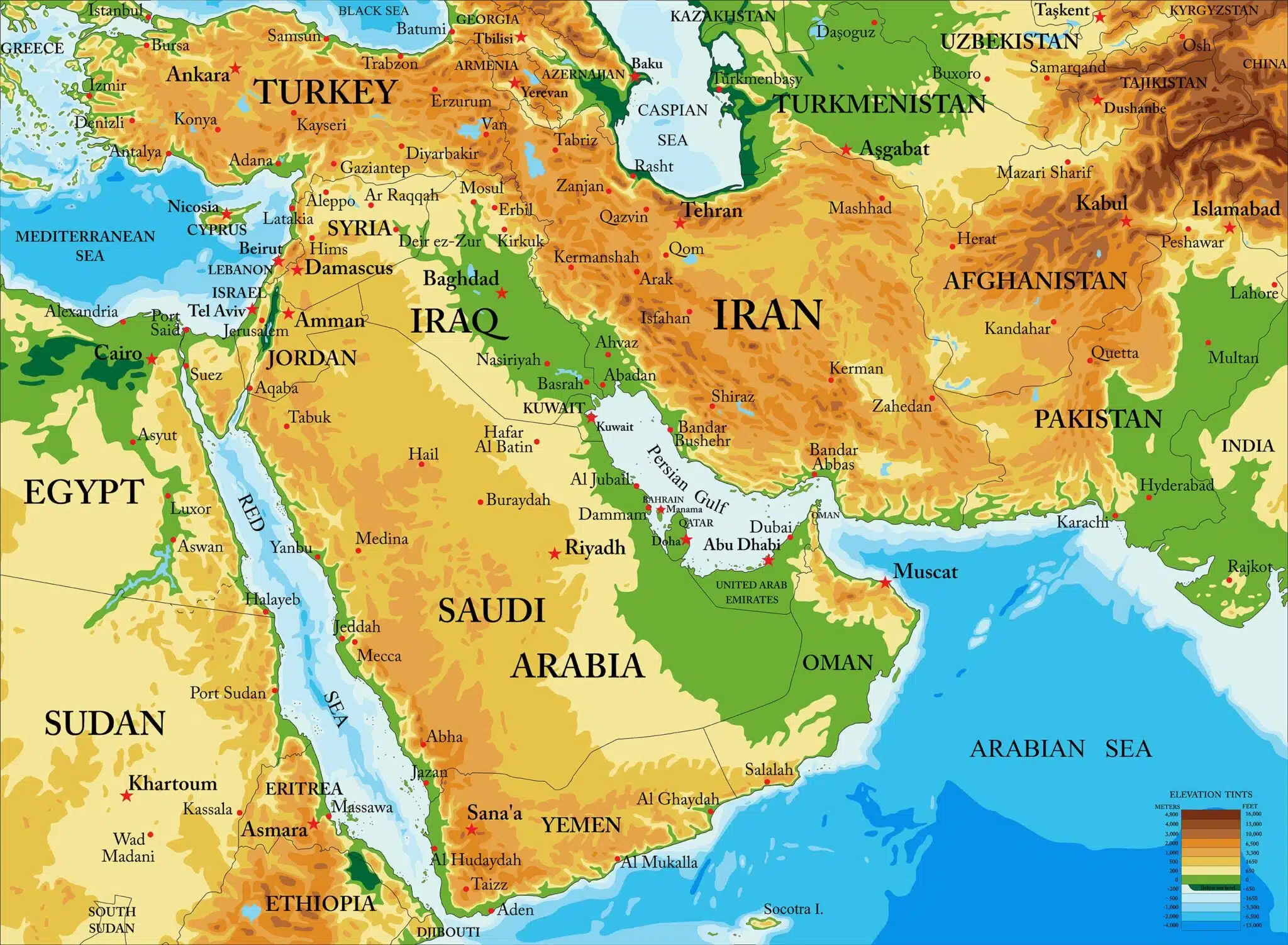Abraham tells his servant that Isaac must not go to Mesopotamia where his family lives. Rather, the LORD will guide the servant and lead him to the wife chosen for Isaac. But if no woman is willing to marry Isaac, the servant will not be accountable for refusal.
Abraham’s servant, concerned that he may not be able to find a woman willing to go with him back to Canaan, asks Abraham, “Suppose the woman is not willing to follow me to this land; should I take your son back to the land from where you came?” (v. 5).
Abraham’s reply is passionate, Beware that you do not take my son back there! The answer is no, under no circumstances should Isaac go to Haran. The reason has to do with fulfilling Abraham’s covenant with God. He explains to his servant, The Lord, the God of heaven, who took me from my father’s house and from the land of my birth, and who spoke to me and who swore to me, saying, ‘To your descendants I will give this land.’
Abraham is rooted in Canaan now. It is the Promised Land, where God declared his descendants will form a nation. His heir, Isaac, must remain in Canaan.
Abraham is confident that the LORD will help see this errand through. He claims that God will send His angel before the servant on his journey, and you will take a wife for my son from there. It is a certainty in Abraham’s mind.
But he adds an encouragement to his servant, so that he will not fear the weight of the oath he is about to take, But if the woman is not willing to follow you, then you will be free from this my oath; only do not take my son back there.
If no woman in Abraham’s home country will consent to marrying Isaac, then the servant does not need to fear punishment. He will have done his best to secure a wife, but if no woman is willing, that’s not his fault. He will be free from the oath he made to Abraham. But Abraham repeats the warning against Isaac going to Mesopotamia, only do not take my son back there. Abraham had settled in Canaan, which was the land God promised to him. Neither he nor his son would abandon it.
With this assurance, the servant placed his hand under the thigh of Abraham his master, and swore to him concerning this matter. There are several views on what placing his hand under the thigh of Abraham meant, but the end result was that it was a sign of submission, from servant to master, that the servant would do his master’s will concerning this matter.
Biblical Text
6 Then Abraham said to him, “Beware that you do not take my son back there! 7 “The Lord, the God of heaven, who took me from my father’s house and from the land of my birth, and who spoke to me and who swore to me, saying, ‘To your descendants I will give this land,’ He will send His angel before you, and you will take a wife for my son from there. 8 “But if the woman is not willing to follow you, then you will be free from this my oath; only do not take my son back there.” 9 So the servant placed his hand under the thigh of Abraham his master, and swore to him concerning this matter.
Check out our other commentaries:
-
Deuteronomy 2:24-25 meaning
Moses reminds the Israelites of the time when God commanded them to confront Sihon in order to take possession of his land....... -
Nahum 1:1 meaning
The prophet Nahum receives a revelation from God concerning Nineveh....... -
Hebrews 11:32-34 meaning
The Pauline Author recognizes that he cannot acknowledge all of the faithful believers, but he names some of the incredible trials they endured for their...... -
Matthew 4:12-16 meaning
To temporarily avoid trouble with the religious leaders of Jerusalem, Jesus moves to Capernaum north of Galilee to begin His ministry. Matthew notes this fulfills...... -
Proverbs 2:20-22 meaning
Solomon sums up the difference between the life of the wise and the life of the foolish.......




